Andrew Mellow Early Career Scholars’ Programme
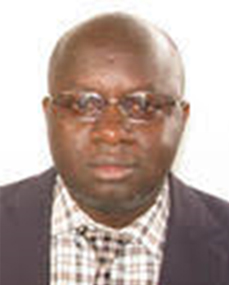
Twesigye Justus
Social entrepreneurship for reducing youth unemployment and enhancing social works’ contribution to Uganda’s sustainable development
Abstract
The social work profession aims at solving diverse social problems and contributing to sustainable social development. However, conventional social work models developed in the global west are often ineffective in Uganda. Also, social workers often lack the requisite knowledge, skills and competences primarily developed in disciplines such as business and economics to effectively intervene in their clients’ situations. The role of social entrepreneurship in enhancing the social work profession’s capacity to reduce youth unemployment in Uganda is unknown. This study aims to assess the role of social entrepreneurship in reducing unemployment among youth social workers and to enhance the profession’s contribution to sustainable social development in Uganda. A triangulated study involving a descriptive case study and a cross-sectional survey will be conducted in Greater Kampala Metropolitan Area. Data will be collected and analysed using both qualitative and quantitative methods. Data analysis will be computer assisted.
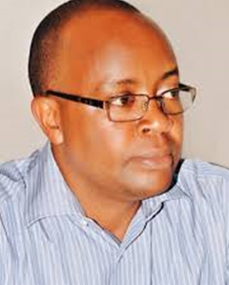
Mugumya Firminus
Community Capitals and University-Community Engagement for Total School Enrolment and Retention in Uganda
Abstract
Despite improvement in primary school enrolment since the government launched Universal Primary Education in 1997, retention and completion rates for both primary and secondary school children remain poor. Past approaches to address demand and supply constraints to school enrolment and retention in Uganda have neither harnessed the opportunities embedded the use of the community capitals framework nor utilised the resourcefulness of universities to leverage sustained community dialogues for improved education outcomes for children and the wider community. Drawing on the community capitals framework as the analytical tool, this study explores opportunities available for “taking universities to the community” to address enrolment, retention and completion gaps.
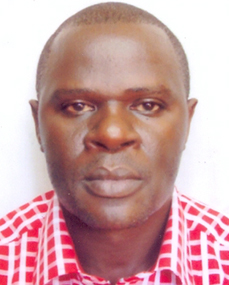
Mugeeere Anthony
Healthcare and Significant Other Needs for Disabled Older Persons Living with Non-Communicable Diseases in Uganda
Abstract
Although there is empirical evidence to suggest that disability and disease often tend to accompany old age, there is limited research on the healthcare and ‘significant other’ needs of older persons living with both disability and non-communicable diseases. This proposed study seeks to explore the needs, inequalities and barriers of healthcare access for older persons living with disability and non-communicable diseases in Uganda. Using a cross-sectional research design combining both quantitative and qualitative approaches, the study will also examine the nature and forms of ‘significant other’ support for these individuals in managing these diseases. It is anticipated that this study, which will be informed by a combination of the life course and sociological theoretical framework of understanding disability and ‘significant others’ will, not only contribute to the academic discourse on this subject but also have multiple paths to impact a range of stakeholders through its evidence-based outputs and dissemination activities.

Naiga Resty
Towards Achieving Sustainable Access to Safe Water Under Community-based Water Management in Rural Uganda
Abstract
Operation and maintenance of communally used and managed water infrastructure is still an uphill task despite a decade of implementing community-based water management system in rural water provision in Uganda. Using a transdisciplinary mixed research design employing both qualitative and quantitative methods of data collection and Ostrom’s eight design principles as an analytical and theoretical framework, the objectives of this action research is to support and facilitate institutional building through designing and implementing Ostrom’s designing principles but also carrying out capacity building such as training and awareness creation as a means of achieving the much needed collective action towards sustainable access to safe water in rural Ganda. The study will further interrogate the gendered patterns of water access and management as well as the implications of water scarcity on children in the two study areas with a view of proposing a comprehensive model of ensuring sustainable access to safe water and also building more robust self-governance community-based institutions. The key outputs of this action research will be four articles, policy briefs to relevant stakeholders and key ministries charged with water provision but also guidelines for building more robust self-governance structures at community level.
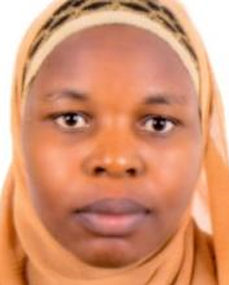
Nakiwala Aisha Sembatya
Finding Their Voices: Narratives of Women in Social Media Platforms
Abstract
This research aims at analysing narratives of women as presented on social media platforms, and how these give agency to women. In it I raise four questions concerning whether social media platforms are providing an alternative forum for women's voices, how women are using Facebook as one form of social media to gain voice and express themselves, what they are saying and why they find such new media liberating. Anchored in the radical feminist media theories and the communication affordances theory, the research will be qualitative as it seeks to generate an in-depth understanding of how women are finding their voices in social media platforms and engagements. Data will be collected through discourse analysis which will involve an analysis of women's Facebook posts (texts) for meaning and themes as well as in-depth and key informant interviews to be conducted with both women Facebook influencers and select women that are knowledgeable in gender issues.
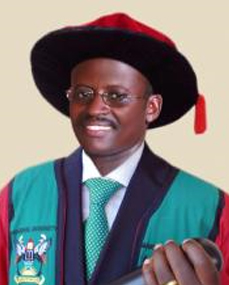
Tayeebwa William
United Nations Discourse of Peacebuilding in the Democratic Republic of Congo: Implications for Regional Security
Abstract
This research project is at the intersection of language, communication with peace and conflict studies. It examines the peacebuilding frames discernible in the monthly Echo de la MONUSCO newsletter, one of the many formats of the public information programme of the United Nations Organisation Stabilisation Mission in the Democratic Republic of Congo (MONUSCO). The main objective is to determine whether the United Nations (UN) in its issued public information accounts advances a liberal peacebuilding agenda, set against alternative approaches proposed by other actors in the country and region. A ‘concurrent nested’ mixed methods design is proposed to analyse the framing of the discourse in the newsletter posted on the Mission’s website during the six odd months of 2017. The emergent frames shall be discussed during interviews with key actors in the country and the region to ascertain whether the UN appreciates alternative Afrocentric approaches of peacebuilding in the country.